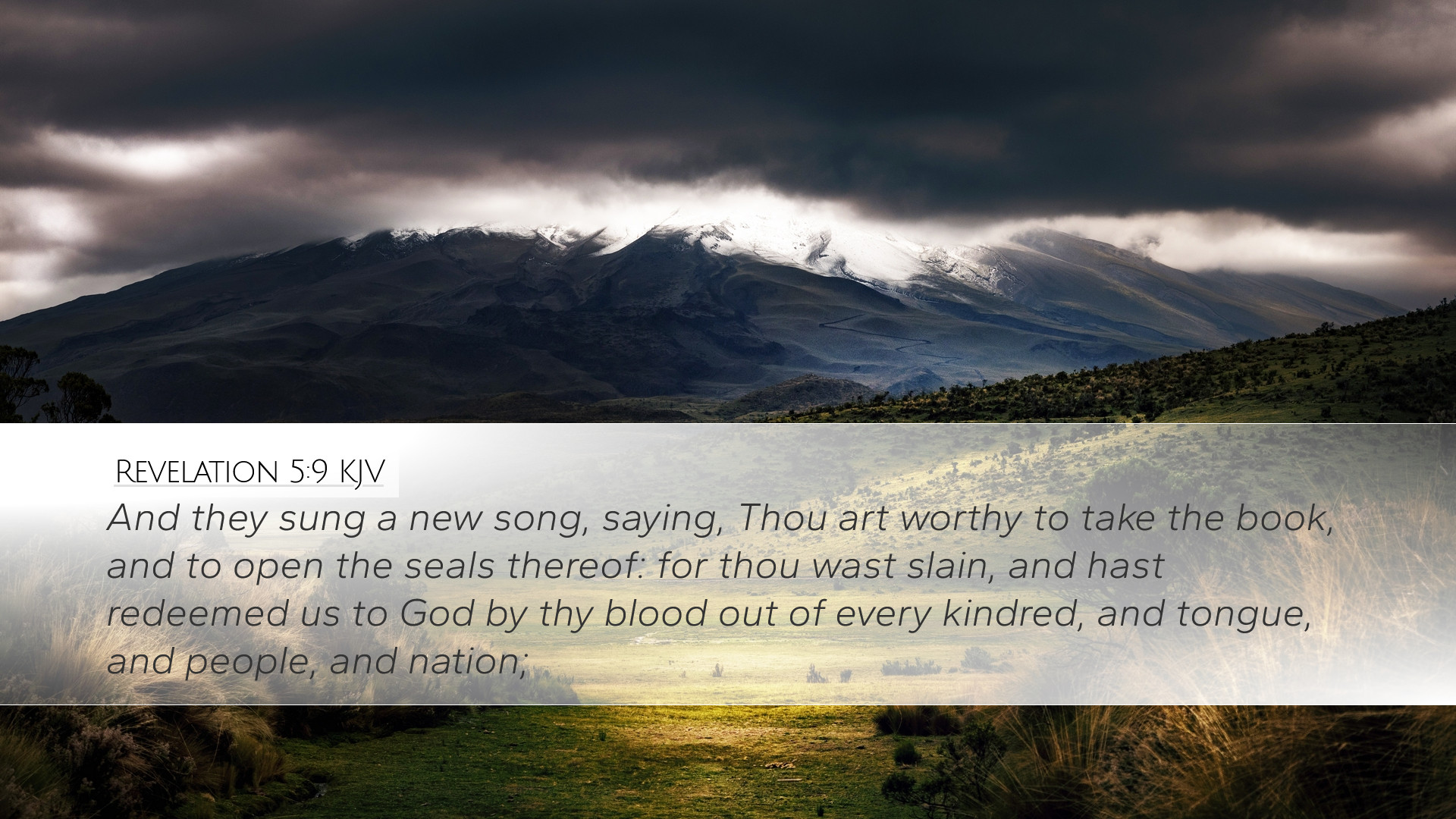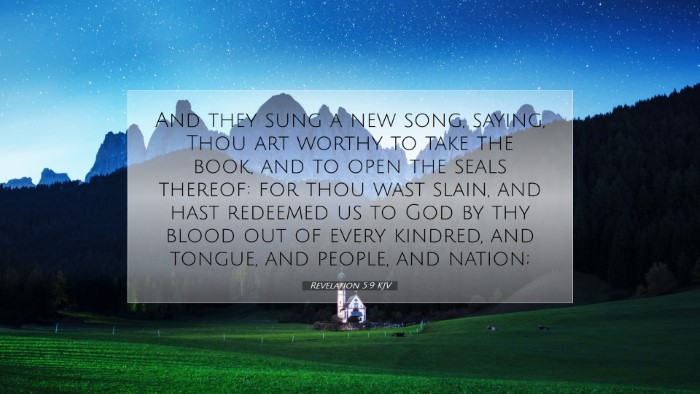Commentary on Revelation 5:9
Verse: "And they sang a new song, saying, Thou art worthy to take the book, and to open the seals thereof: for thou wast slain, and hast redeemed us to God by thy blood out of every kindred, and tongue, and people, and nation;" (Revelation 5:9, KJV)
Introduction
The passage in Revelation 5:9 reveals profound truths concerning the worthiness of Christ and the scope of His redemptive work. This verse is laden with theological significance and sets the stage for understanding the overarching themes of worship, salvation, and the inclusive nature of God’s kingdom.
Insights from Public Domain Commentaries
1. Matthew Henry's Commentary
Henry emphasizes the theme of worthiness, illustrating that the song sung by the redeemed acknowledges Christ's sacrificial death as central to their redemption. He notes that this new song is emblematic of a fresh revelation of God's grace, highlighting the transformation that follows salvation.
Henry states, “The Lamb of God is worthy, not only because He was slain, but also because He has redeemed His people.” The multitudes sing in praise of the Lamb’s redemptive power, which extends beyond a single nation, symbolizing the universality of redemption.
2. Albert Barnes' Notes
Barnes delves into the implications of the phrase "new song," suggesting that it reflects the fresh mercies and deliverance experienced by believers. He articulates that this song signifies a joyous acknowledgment of God's intervention in humanity's plight.
Furthermore, Barnes highlights that the passage also speaks to the inclusiveness of the Gospel. He notes, “Redeemed out of every kindred, tongue, people, and nation” underscores the diverse body of Christ, affirming that salvation is not limited by ethnicity or cultural barriers.
3. Adam Clarke's Commentary
Clarke offers a detailed examination of the redemption process, explaining that the death of Christ was not arbitrary but served a divine purpose in fulfilling the necessity of atonement for sin. He articulates that the act of being "slain" denotes both the suffering of Christ and His obedience to the Father, ultimately leading to His exaltation.
Clarke also stresses the importance of the phrase "and hast redeemed us to God," explaining the relational aspect of redemption. Redemption is not merely a transaction but is deeply personal, as believers are brought into communion with God through Christ’s sacrifice.
Theological Themes
- Worship and Praise: The act of singing a new song is not just an expression of joy; it becomes a vital part of worship. The worthiness of Christ is anticipated through collective recognition and adoration.
- Redemption’s Scope: The inclusivity of Christ's redemptive work outlines a core tenet of Christian theology. His blood was shed for all nations, and this universal aspect invites every believer into the fellowship of the redeemed.
- The Nature of Christ: The dual depiction of Christ as both slain and victorious conveys the fullness of His character—His humility in sacrifice and His sovereignty in redemption. Clarke emphasizes this duality as a basis for believers' hope.
Concluding Thoughts
Revelation 5:9 holds a central place in Christian eschatological thought, interweaving themes of worthiness, redemption, and the collective identity of believers. For pastors, students, and theologians, this verse serves as a profound reminder of the sacrificial love of Christ that resonates through eternity.
The new song sung in Heaven not only celebrates past accomplishments of grace but anticipates a future filled with the glorification of God. As believers, understanding the depth of this verse and its implications can inspire a life of worship that reflects the worthiness of the Lamb.


